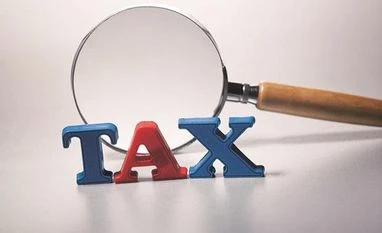Changes in Income Tax rules will have an impact on taxpayers when they file their returns in 2025. Here are the key changes:
Income tax slabs: The government has revised the income tax slabs under the new tax regime. These changes aim to help taxpayers save more tax for Financial Year 2024-25 (FY25).
Slabs under the new tax regime are as follows: Rs 0 to Rs 3,00,000: no tax; Rs. 3,00,001 to Rs. 7,00,000:- 5 per cent tax, Rs 7,00,001 to Rs 10,00,000: 10 per cent, Rs. 10,00,001 to Rs. 12,00,000: 15 per cent, Rs 12,00,001 to Rs 15,00,000: 20 per cent and above Rs 15,00,001: 30 per cent.
Also Read
Revised basic exemption limit: The basic exemption limit has been increased from Rs 250,000 to Rs 300,000. This change means that individuals earning up to Rs 300,000 will not be liable to pay any income.
Increased standard deductions: In the new tax regime, the standard deduction for salaried employees has been raised from Rs 50,000 to Rs 75,000. For family pensioners, this deduction has increased from Rs 15,000 to Rs 25,000.
The standard deduction limit remains unchanged for individuals opting for the old tax regime in FY25 (assessment year 2025-26). In this regime, salaried individuals and pensioners are eligible for a standard deduction of Rs 50,000, while family pensioners can claim Rs 15,000.
New TDS regulations: Under the new tax regime, individuals can claim a deduction of up to 14 per cent of their basic salary for their employer's contribution to the NPS. Previously, the maximum deduction an employee could claim was limited to 10 per cent of their basic salary.
New tax rates for Long-Term Capital Gains (LTCG) and Short-Term Capital Gains (STCG): The tax rate for STCG from equity investments has been increased to 20 per cent from the earlier rate of 15 per cent. For all other assets, STCG will be taxed according to the taxpayer's applicable Income Tax slab rate. LTCG, on the other hand, will now be taxed at a flat rate of 12.5 per cent.
LTCG from equity and equity-oriented mutual funds will now be exempt from tax up to Rs 1.25 lakh per financial year, an increase from the previous exemption limit of Rs 1 lakh.
Changes in holding period for capital gains taxation: For determining whether an asset is classified as long-term or short-term, only two holding periods will now apply: 12 months and 24 months. The earlier 36-month holding period has been eliminated. Additionally, the holding period for all listed securities is set at 12 months.
Claiming TDS/TCS tax credit to lower TDS on salary: Salaried employees can now claim credit for tax deducted at source (TDS) on other incomes (apart from salary) and tax collected at source (TCS) on other expenses to reduce the TDS applicable on their salary income.
TCS on buying notified luxury goods: An individual purchasing notified luxury goods will incur an additional cost due to the imposition of Tax Collected at Source (TCS). The TCS will be applicable on the value of goods that exceed Rs 10 lakh.
Introduction of Vivad se Vishwas Scheme 2.0: The government has reintroduced the Direct Tax Vivad Se Vishwas Scheme to address disputes between taxpayers and the Income Tax department.
)